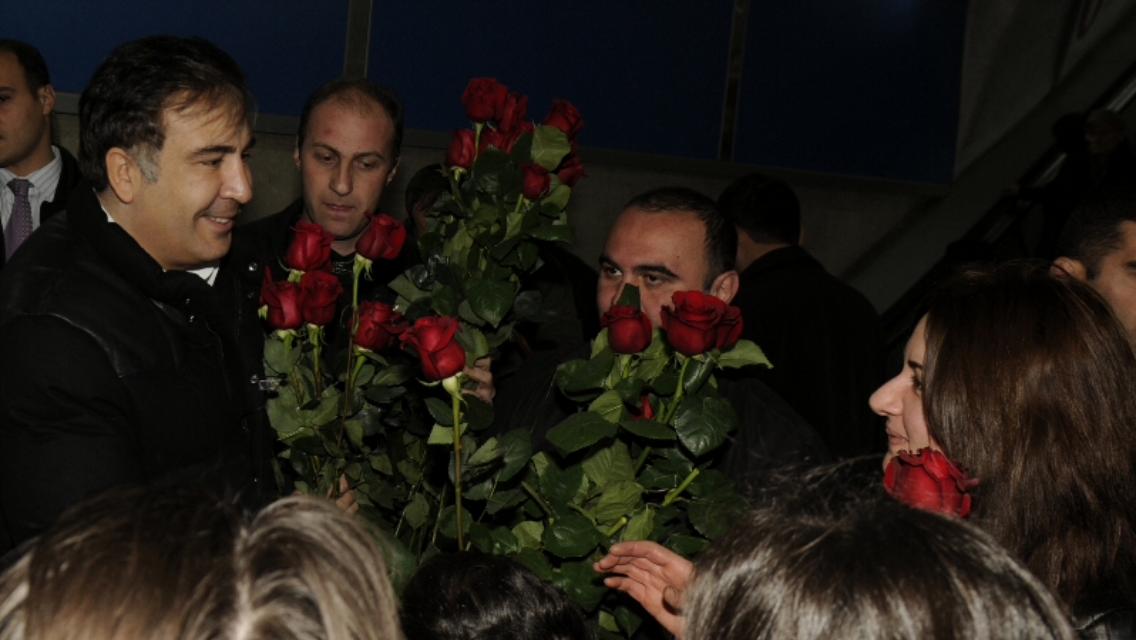West to Georgia: What's allowed for us is forbidden for you Agents of discord
The Georgian parliament's adoption of a law regulating the rights and obligations of foreign agents operating in the country has led to a serious crisis in relations between Tbilisi and the Western bloc. The initiator of the law is Georgia's ruling "Georgian Dream" party.
According to the new legislation, non-profit organizations recognized as foreign agents will have to register with the Ministry of Justice and declare their assets. The term "foreign agent" applies to organizations and institutions where 20 per cent of their income comes from individuals who are not citizens of the country, foreign government agencies, or legal entities created under foreign legislation. Non-compliance with registration rules can result in fines of up to $9,400.
The reasons that prompted the authorities of the country to take such a step should be sought in the recent past of this state. After the collapse of the USSR, Georgia, once one of the wealthiest republics of the Soviet Union, found itself on the brink of economic disaster.
During this period, the US and the EU allocated millions of dollars to finance state and public organizations in the young independent state. Over several decades, more than 10,000 non-governmental organizations (NGOs) were created in Georgia, covering the entire country in their scope of activities. These structures played a significant role in 2003 during the "Rose Revolution," when President Eduard Shevardnadze was overthrown and replaced by a team of young reformers including Mikheil Saakashvili, Zurab Zhvania, and Nino Burjanadze, who enjoyed the support of Washington. Immediately after the revolution, the US Congress allocated financial aid of $1.3 billion to the new government.

Saakashvili's government lasted until 2014 when it was ousted as a result of popular protests, but non-governmental organizations funded from abroad continue to play an important role in Georgia's political life.
According to official Tbilisi, the European Endowment for Democracy, the Open Society Foundation, the Konrad Adenauer Foundation, the Friedrich Ebert Foundation, the Heinrich Böll Foundation, and other organizations operate in the country. The Open Society Foundation alone has invested over $100 million in Georgian political structures. Out of 93 grants awarded by this organization, 53 have a political focus. A significant portion of the foundation's funds is directed towards financing the media.
For example, in 2019, the foundation fully or partially supported: the Kakheti Information Center, the online publication Netgazeti.ge, the television company "Pirveli," the journalists' union "Khalkhis Khma," the information centre Samtskhe-Javakheti "jnews.ge," the news portal and radio Samkhretis Karibche, the "Noosphere" foundation, radio "Ivris," radio "Mosaic," radio "NOR," and many other publications.
This situation had been tolerated for a long time, but over the past four years, the exacerbation of the international situation and the war in Eastern Europe have disrupted the established status quo. While the Georgian Dream government, learning from bitter experiences of previous confrontations with Russia, seeks to maintain neutrality and possibly even gain economic benefits from acting as an intermediary between Moscow and the West, the pro-Western opposition and affiliated NGOs aim for Tbilisi to more actively support the Western bloc. Since 2022, the opposition has been acting to destabilize the situation in the country, and the government, in response, decided to limit the activities of Western-funded non-governmental organizations.
At the beginning of 2023, the law on foreign agents was first introduced in the Georgian parliament but was soon withdrawn. According to Mamuka Pipia, the international secretary of the party "Solidarity for Peace," "the law was poorly presented, the public did not read it and was not properly informed." In their initiative, Georgian legislators refer to international experience.
Interestingly, the first Foreign Agents Registration Act (FARA) was passed in the United States in 1938. According to this act, organizations and individuals recognized as foreign agents were required to provide their data to the Department of Justice, submit reports on their activities, and label published materials.
Although the law defined foreign agents as persons lobbying for foreign interests and influencing US foreign policy, in practice, one could be classified as such solely due to their political activities. Violators of FARA face severe penalties. For lack of labelling, fines start at $5,000 or imprisonment for six months, and for working without registration, fines can reach up to $250,000 and imprisonment for up to five years.
In the early 21st century, a similar law on foreign agents was adopted in Russia. Critics pointed out its extreme vagueness, which could classify almost any politician as an agent of influence. Today, foreign agents in Russia are not allowed to participate in elections or place advertisements on their resources, and all their materials must be marked with a special label. They are also required to send reports on their activities to the Ministry of Justice.
Laws on foreign agents also exist in Israel, Australia, the United Kingdom, Kyrgyzstan, India, Cambodia, Uganda, Ethiopia, and China. In France, the local law on foreign agents applies to individuals and organizations representing the interests of entities located outside the European Union. The punishment for improper registration in France can be a fine of up to 45,000 euros or up to three years in prison. As noted by "The Conversation," "many countries declare these laws as critical to defending national sovereignty." Sometimes, analogues of laws on foreign agents are directed against specific countries.
In Latvia, the "Law on Societies and Foundations" is aimed at countering Russian influence. As its creators explain: "One of the main problems is the large financing from Russia, which ensures the activities of public organizations in Latvia, and this financing is rapidly increasing. The goals for which this financial assistance is spent include cultural events, information campaigns (to change society's views on democratic values, against the state's participation in the European Union and the North Atlantic Alliance), disinformation campaigns, and provocative actions. The activities, at first glance, comply with the Constitution of the Republic of Latvia, but in reality, anti-state activities are being carried out, and society is being divided."

Of course, the West reacted negatively to the initiative of the Georgian authorities and parliament. From its point of view, there are "destructive" NGOs from Russia, China, and other countries operating in the European Union, and there are "right" Western NGOs. Their external funding is fully justified because "this type of funding is a lifeline for most human rights non-governmental organizations, as they often receive scant internal support."
Both Washington and Brussels characterized the Georgian law on foreign agents as "sliding into authoritarianism and Moscow's intrigues." The non-governmental organizations themselves mobilized tens of thousands of people onto the streets of Tbilisi. Formally, their demands boil down to the repeal of the law, but analysts do not rule out that the opposition intentionally seeks to replicate the "Rose Revolution" of 2003 and come to power through force. The mobilization capabilities of NGOs should not be surprising. Working in them guarantees income in a not wealthy country. For example, salaries in NGOs can reach 3,000 lari (just over $1,000).
In early June 2024, the law on foreign agents was signed by the chairman of the Georgian parliament, but the situation in the country continues to remain tense. The internal confrontation within Georgian society persists, and neighbouring countries emphasize that it is an internal matter of the neighbouring state.
The views and opinions expressed by guest columnists in their op-eds may differ from and do not necessarily reflect the views of the editorial staff.








